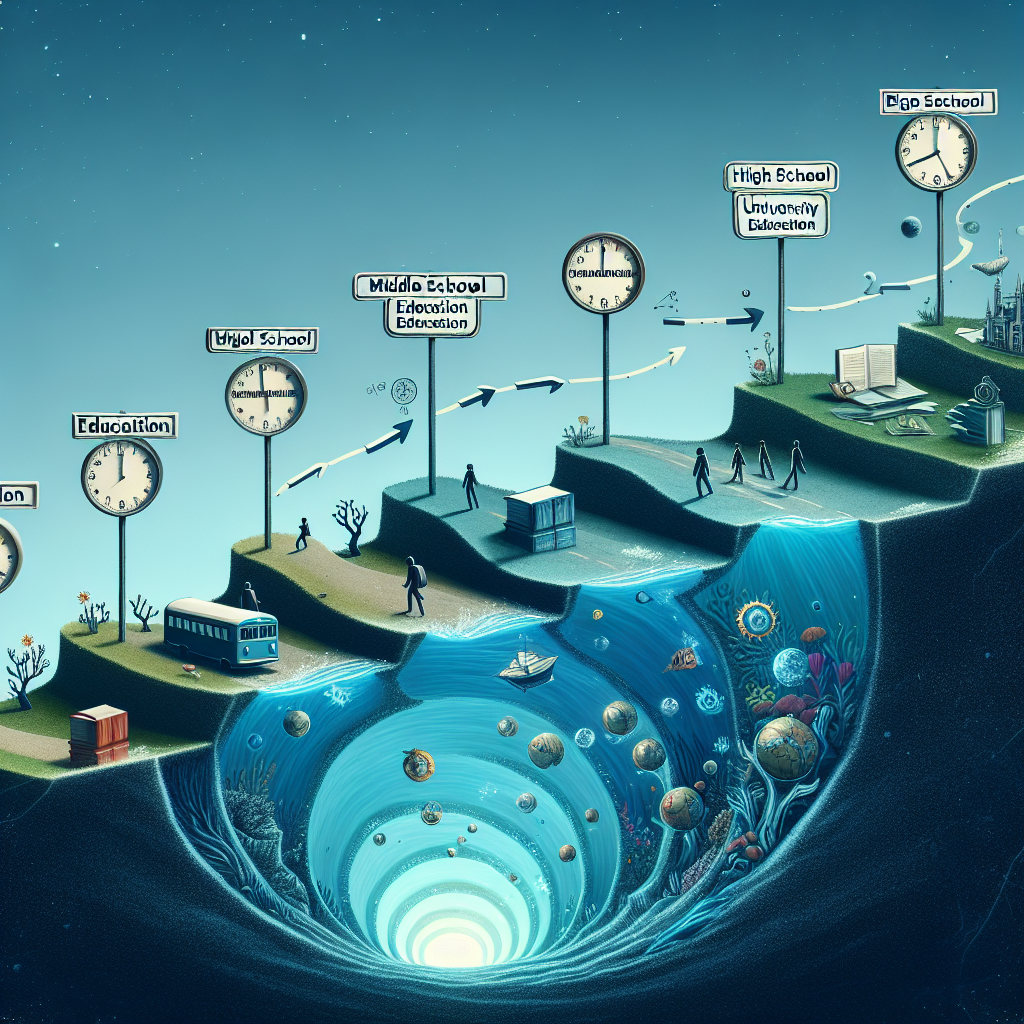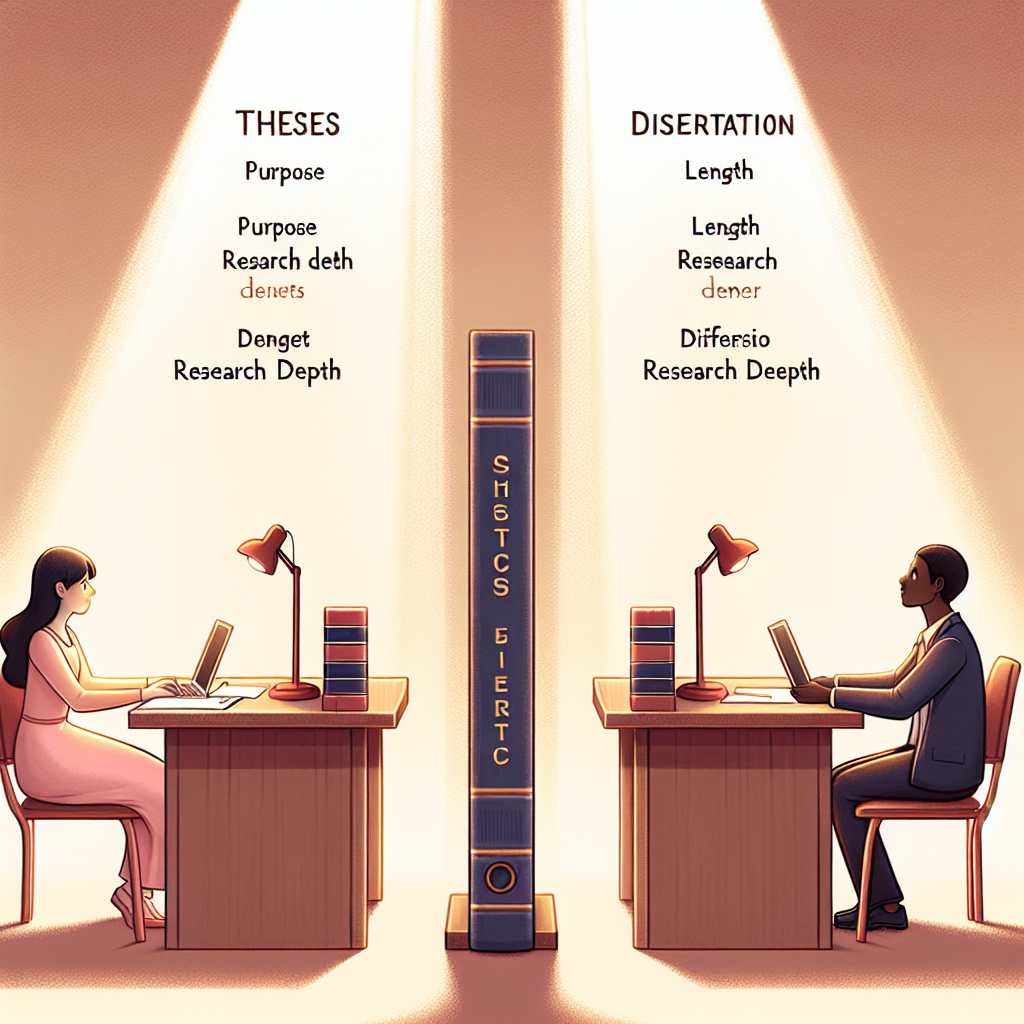Master’s Degree vs Phd. Choosing the right path for graduate studies can be a daunting task. The decision between a Master’s degree and a PhD is often a pivotal one.
Both degrees offer advanced knowledge and skills. Yet, they differ in many aspects.
A Master’s degree typically focuses on professional application. It provides specialized knowledge in a specific field.
On the other hand, a PhD is more research-oriented. It aims to contribute new knowledge to a field of study.
The choice between a Master’s Degree vs Phd can impact your career trajectory. It can influence your earning potential and professional opportunities.
This article will delve into the key differences between these two degrees. It will explore aspects like duration, depth of study, career prospects, and financial considerations.
Our goal is to provide you with a comprehensive guide. This will help you make an informed decision about your academic future.
Whether you’re a prospective student, an educator, or a professional considering further education, this article is for you. Let’s embark on this journey of understanding the Master’s Degree vs Phd
Understanding the Basics: What are Master’s and PhD Degrees?
At its core, a Master’s degree is an academic program that deepens your understanding of a specific field. It builds on undergraduate knowledge, offering more specialized insights. Master’s programs can be research-oriented or professional, depending on the field and career goals.
PhD programs, however, dive even deeper into academia. These doctoral programs emphasize original research. PhD candidates contribute new theories, data, or experiments to their disciplines. It is often the pathway for those intending to pursue academia or advanced research positions.
Both Master’s and PhD degrees require dedication and perseverance. They differ significantly in focus and outcomes. Here’s a quick overview of their distinctive features:
- Master’s Degree:
- Duration: 1-2 years
- Focus: Advanced subject knowledge
- Culmination: Thesis or final project
- PhD Degree:
- Duration: 3-7 years
- Focus: Original research
- Culmination: Dissertation
For some students, a Master’s degree serves as a stepping stone to a PhD. It allows them to gain necessary skills and confidence in research methods. For others, it is an endpoint that prepares them for advanced roles in industry and education.
It’s important to understand these foundational differences. They will guide you in aligning your academic journey with your career aspirations. Each degree has its unique challenges and rewards, tailored to varied professional and personal goals.
Duration and Depth of Study: Timing Your Academic Journey

The duration of a graduate program can greatly affect your academic and professional timeline. Master’s programs typically require 1 to 2 years to complete. This time frame allows students to gain specialized knowledge swiftly.
In contrast, PhD programs demand a significantly longer commitment. They usually take between 3 to 7 years. The extended duration reflects the depth and scope of research required. These years include coursework, comprehensive exams, and dissertation writing.
The shorter duration of a Master’s degree is appealing to those eager to enter the workforce. Graduates can quickly apply their skills in professional settings. This rapid transition can lead to quicker career advancement.
PhD students, however, spend much of their time conducting in-depth research. This commitment results in expertise and a strong foundation in their chosen field. PhD studies might seem lengthy, but they are crucial for academic and high-level research careers.
Your choice between a Master’s and a PhD should consider the time you are willing to invest. Different career goals and personal timelines make each option advantageous in its own way. Understanding these timelines helps in planning your educational journey effectively.
The Path to a PhD: Is a Master’s Degree a Necessary Step?

Considering whether a Master’s degree is essential for a PhD is common. In many fields, a Master’s degree is not an absolute necessity. Students can sometimes move directly to a PhD program from a bachelor’s degree.
However, pursuing a Master’s degree before a PhD offers distinct advantages. It provides a deeper understanding of the subject and helps refine research skills. This preparatory phase can enhance readiness for the intense demands of a PhD.
Moreover, a Master’s degree may allow you to gauge your interest in a research-oriented career. It offers an opportunity to focus your academic interests before committing to a PhD’s lengthy process. This phase can ensure your academic goals align with your aspirations, providing clarity before taking the next step.
Coursework vs Research: The Core Focus of Master’s and PhD Programs
A Master’s program typically centers around coursework and applied learning Master’s Degree vs Phd Students engage in classes that explore advanced topics in their field. The goal is often to develop specialized knowledge for professional use.
This coursework-heavy structure can include lectures, seminars, and group projects. It facilitates practical application and understanding of theoretical concepts. Master’s programs sometimes culminate in a capstone project or a thesis.
PhD programs, on the other hand, prioritize research and scholarly contributions. These programs focus less on formal coursework. Instead, students delve into independent, original research endeavors.
The shift from coursework to research in a PhD program is significant. During this period, students formulate research questions and conduct rigorous investigations. Here, the dissertation becomes the focal point of their academic journey.
Key distinctions between Master’s and PhD programs often include:
- Master’s programs emphasize structured learning.
- PhD programs prioritize original research and scholarly writing.
Expectations also differ significantly between the two paths:
- Master’s students frequently work on group projects.
- PhD candidates focus on individual, independent research projects.
Ultimately, the balance between coursework and research defines the academic experience. Deciding which path to pursue depends on personal career goals and interest in research.
Thesis vs Dissertation: The Culminating Projects of Graduate Studies

Master’s Degree vs Phd A thesis is a hallmark of many Master’s programs, serving as their concluding project. It typically involves conducting research on a specific topic. The goal is often to demonstrate the student’s ability to apply learned concepts.
Master’s theses require less original research compared to dissertations. They often reflect a synthesis of existing knowledge. Despite this, they still demand rigorous investigation and clear articulation of ideas.
In contrast, a dissertation is a core component of PhD programs. It requires original research that contributes new insights to the field. Dissertations are typically longer and more detailed than theses.
Completing a dissertation involves several steps, including proposing and defending the research. The process is challenging and demands a high level of dedication. PhD candidates must often defend their dissertations in front of a panel of experts.
Both theses and dissertations prepare students for professional careers Master’s Degree vs Phd They also enhance their ability to think critically and conduct scholarly research. The skills developed during these projects are invaluable for future endeavors.
Career Prospects: Professional Roles and Academic Opportunities
Master’s and PhD degrees open different career doors. Understanding their potential outcomes can guide your education decisions. They lead to varied roles based on the level of expertise and specialization.
Master’s degree holders typically move into advanced professional positions. These roles often require specialized skills, enhancing their career prospects. Industries like business, healthcare, and education highly value such credentials.
PhD graduates are often seen as experts in their fields. Their careers frequently involve research and academia. Universities and research institutions actively seek PhD holders for teaching and investigative roles.
Beyond academia, PhDs find opportunities in research-intensive industries. This includes sectors such as biotechnology, engineering, and social sciences. Their training in independent research skills is highly prized.
The list below highlights different careers based on degree level:
- Master’s Degree Careers: Business manager, advanced practice nurse, education administrator.
- PhD Careers: University professor, lead researcher, policy analyst.
While some roles overlap, the degree level influences job responsibilities. For instance, a master’s may lead to consultancy, while a PhD might direct research projects. This depth of specialization often determines career paths.
Earnings potential also varies between the degrees. Master’s degree holders usually earn higher starting salaries than their bachelor counterparts. PhD graduates can achieve even higher earnings, though it depends on the field.
In summary, both paths offer substantial opportunities Master’s Degree vs Phd Choosing the right degree depends on individual career goals and interests. Aligning these with industry demands ensures a fulfilling professional journey.
Financial Considerations: Investment, Funding, and Earning Potential

Pursuing a graduate degree requires a significant financial investment. It’s crucial to consider both the costs involved and potential funding opportunities. Understanding these aspects helps in making informed decisions.
Master’s programs generally cost less in terms of tuition than PhD programs. However, the shorter duration may mean less time to accumulate debt. Despite this, it’s important to evaluate the return on investment.
PhD programs, spanning over several years, can become expensive. However, they often include funding options. Many PhD students receive stipends, grants, or teaching assistantships to cover expenses.
Funding opportunities vary between master’s and PhD programs. Some common sources of funding include:
- Scholarships
- Fellowships
- Research grants
- Employer tuition assistance
Earning potential post-graduation also varies between these degrees. Typically, PhD holders earn more over their careers due to their advanced expertise. However, master’s graduates still enjoy a significant salary boost compared to bachelor’s holders.
Weighing earning potential against educational investment is key. While PhDs might offer higher salaries, this varies by industry. For some fields, a master’s degree may sufficiently boost earning power.
In summary, the financial aspect of pursuing a master’s vs PhD involves weighing investment, funding options, and future earning potential. Evaluating these factors is essential for a decision that aligns with your financial goals and career aspirations.
Admission Requirements and Competitive Nature of PhD Programs
PhD programs are known for their competitive admission process. They require more rigorous qualifications compared to master’s programs. Candidates must be well-prepared and have strong academic records.
A master’s degree is often not mandatory for entry into many PhD programs, but it can strengthen applications. Experience in the field and a clear research proposal can set candidates apart. Applicants should demonstrate their capability for independent research.
Applications often include transcripts, standardized test scores, and letters of recommendation. The selection process also considers the alignment of the candidate’s research interests with faculty expertise. Finding a faculty advisor willing to mentor the research is crucial.
The competitive nature of PhD admissions stems from limited slots and high academic expectations Master’s Degree vs Phd. Prospective students should focus on showcasing their potential for contributing original research. A well-prepared application enhances the likelihood of acceptance into a prestigious program.
Flexibility and Commitment: Balancing Life with Graduate Studies
Pursuing a master’s degree often provides greater flexibility. Many programs offer part-time options, allowing students to work while studying. This makes it appealing for professionals seeking career advancement.
PhD programs, however, demand a higher level of commitment. They typically require a full-time focus due to the intense research involved. Candidates may need to reside near the university to access resources and faculty support.
Balancing graduate studies with personal responsibilities can be challenging Master’s Degree vs Phd Time management becomes crucial, especially for PhD students. Establishing a routine and prioritizing tasks are key strategies to maintain focus and manage stress effectively.
The Long-Term Impact: Career Trajectory and Personal Growth

Earning a master’s degree often leads to immediate career benefits. Graduates may qualify for higher-level positions, resulting in improved salary prospects. This degree also opens doors to specialized roles within various industries.
PhD holders may choose different career paths, often entering academia. Becoming a university professor or conducting advanced research is common. This path can be fulfilling for those passionate about contributing new knowledge.
Both degrees offer personal growth opportunities. They enhance critical thinking and problem-solving skills. This intellectual development encourages lifelong learning, valuable in all professional and personal endeavors.
Making the Decision: Aligning Your Goals with the Right Degree
Choosing between a Master’s Degree vs Phd is a significant decision. It requires careful consideration of both your career and personal aspirations. Understanding what you want from your future is crucial.
Begin by evaluating your career goals. Do you aim for a role that requires specialized skills? If so, a master’s degree might be suitable. Consider the industries you wish to enter and the credentials they require.
Reflect on your desire for research. A PhD may be ideal if you are drawn to exploration and making original contributions. This path suits those who enjoy academic challenges and in-depth studies.
Think about the time and financial commitment each degree demands. Master’s programs are shorter and sometimes less expensive. However, a PhD offers opportunities for scholarships and assistantships that might offset costs.
Finally, list your priorities to clarify your decision:
- Desired career outcomes and professional advancement
- Interest in research and potential academic involvement
- Time availability for full or part-time study
- Financial readiness and funding opportunities
This reflective approach helps align your personal aspirations and career objectives with the most appropriate degree path. Making this choice with clarity can lead to both personal satisfaction and professional success.
Master’s vs PhD – Choosing the Path That’s Right for You
Choosing between a master’s and a PhD is a pivotal step in shaping your academic and professional future. Both paths offer distinct opportunities and challenges, aligned with different aspirations and career goals.
Master’s Degree vs Phd. A master’s degree is perfect for those seeking advanced expertise and faster entry into specialized roles. Conversely, a PhD is ideal for aspiring researchers and academics committed to long-term scholarly endeavors. By aligning your personal goals and career objectives with the right program, you ensure a fulfilling educational journey and a rewarding career trajectory.




